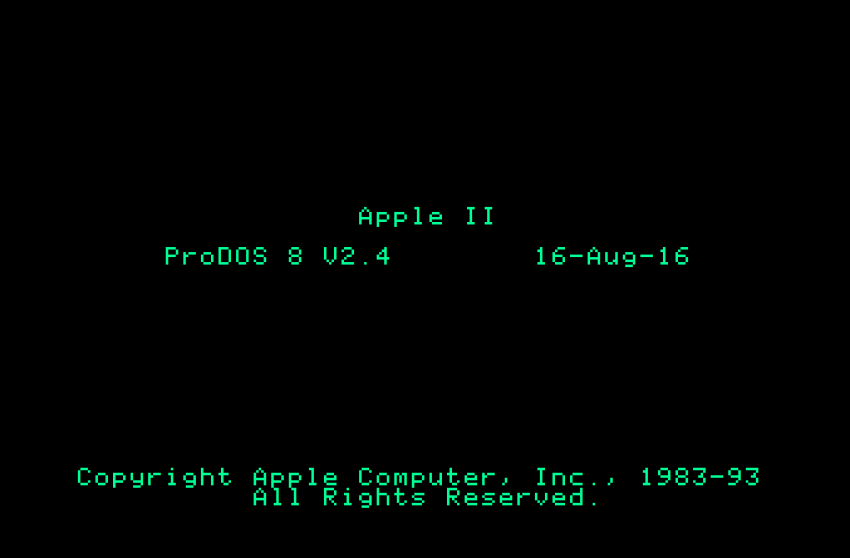If you own an Apple II computer, we have news for you: We just released a new update of ProDOS for the first time since 23 years, thanks to software developer John Brooks.
In 1993 ProDOS was released in version 2.0.3 and since then it has been Apple's last official update for the Apple II series. But on Friday, it was replaced by ProDOS 8 in version 2.4, which Brooks released to mark the 30th anniversary of the Apple IIGS.
For history, Steve Jobs presented the first Apple II computers designed by Steve Wozniak for 1977. Apple IIGS was the fifth model of the Apple II series, released on September 15 of 1986. Apple continued with the sale of the Apple II series up to 1993.
As noted by Ars Technica, the update brings improvements for previous Apple.
Those who do not have an Apple II PC Internet Archive created an emulator that runs the ProDOS 2.4 update.
Brooks' improvements to the new ProDOS include a Bitsy Bye, (new launcher) and a new Bitsy Boot, a utility for quick and easy booting of Apple IIs. Ars reports that Bitsy Bye runs on less than 1 kB of RAM, while the auxiliary πρόγραμμα εκκίνησης τρέχει με λιγότερα από 400 bytes, καθιστώντας το παράδειγμα της υψηλής απόδοσης της codifications.
The ProDOS 2.4 ISO is available at the end of the publication but and on the Brooks Call-APPLE page. According to Brooks, the first screen of the application shows the date 16-August-16 "for Woz" and probably refers to SWEET16, the 16-bit metaprocessor written by Wozniak and used in Apple II.
Download
140k ProDOS 2.4 disk image: prodos_2_4-dsk





